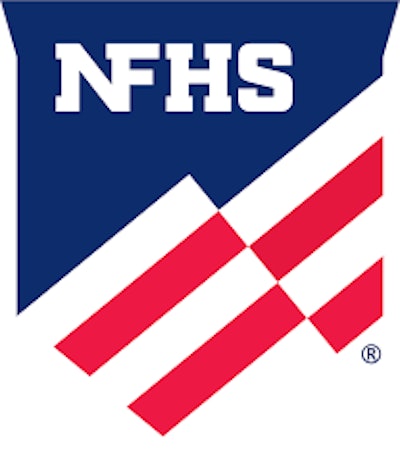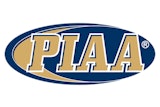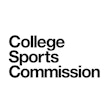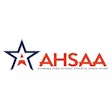
The difference in high school athletics vs. sports at the college and professional levels? Perhaps there are many answers to that question but none more important than a focus on education. And among national sports organizations, no group has a larger and more profound educational presence than the NFHS, the national leader and advocate for high school athletics and performing arts programs.
Through the NFHS Learning Center (www.NFHSLearn.com) , more than 460,000 online education courses were taken in the month of July alone – an all-time record for the month. Coaches, administrators, students, parents, officials, speech and music educators – and others – have been getting ready for the new school year with an emphasis not on winning, but on keys to success through education.
Sixteen years after starting the NFHS Coach Education Program, the response by individuals who want to keep winning in the proper perspective continues to rise year by year. Amazingly, with more than three million courses delivered the past 365 days – another record – the overall number of courses taken since the start in 2007 is now 19.7 million.
And as another year of athletics and other activities begin in middle schools and high schools nationwide, the Learning Center has a course for everyone. Almost 100 courses are now available – including more than 60 that are free – for students, coaches, athletic directors, school administrators, parents, officials, performing arts educators, music adjudicators and others involved in high school activity programs.
From a risk minimization standpoint, four free courses top the list of all-time courses delivered: Concussion in Sports, Heat Illness Prevention, Sudden Cardiac Arrest and Concussion for Students. Combined, these four courses account for more than 13 million of the 19.7 million courses.
Along those same lines, the Football Tackling course that was released in February 2022 has already been accessed more than 50,000 times. This free course showcases proper tackling skills and techniques that can help minimize risks associated with the most popular boys high school sport.
With the ever-present focus on sportsmanship and improving behavior in sports, the Learning Center offers the free Sportsmanship course, which is used by many states and schools as a teaching tool, as well as a requirement for returning to competition after an ejection. The course, which debuted on the NFHS Learning Center in 2011, has been delivered to more than one million individuals in the past 12 years, and is among the top five most popular courses offered.
With sportsmanship being one of most important outcomes of involvement in education-based activity programs, perhaps appropriately, students have taken more than 70 percent of the Sportsmanship courses in the past. Given the decline in behavior by other groups at high school games, the updated course reiterates the critical importance of positive behaviors by everyone – parents, coaches, students, officials and others.
In an attempt to reach all individuals involved in interscholastic sports and other activities, the NFHS developed the National Parent Credential three years ago. Supporting the NFHS Learning Center’s continued efforts to correct negative parent behavior at events, the curriculum for the National Parent Credential is comprised of two free courses – The Parent Seat and Positive Parenting Within School Programs. Parents who achieve the National Parent Credential receive a certificate and a badge to be displayed on their Learning Center dashboard.
One of the most recent success stories of the Learning Center is the School Honor Roll Program, which was initiated as an incentive for schools to encourage their coaches to become involved in professional development. Coaches can take key courses that assist in their roles as teacher-coaches. Since the implementation of the program, about 150 schools in 18 states have taken advantage of this professional development opportunity for their coaches.
Coaches can become a NFHS Level 1 Coach by completing “Fundamentals of Coaching” along with three free courses: “Concussion in Sports,” “Sudden Cardiac Arrest” and “Protecting Students from Abuse.” When 90 percent of a school’s coaches complete these courses, the school can earn Level 1 status through the School Honor Roll program. Additional courses are required to advance to Levels 2 and 3.
Recently, one of those schools, the Arts Academy at Benjamin Rush in Philadelphia, Pennsylvania, earned Level 3 status for the fourth consecutive year. By comparison, only 15 schools have earned Level 3 status one time. Todd Corabi, director of athletics at the school, had the following to say about his school’s amazing accomplishment:
“The coaches from the Arts Academy at Benjamin Rush embraced the courses available on NFHS Learn and are proud to achieve this honor for the fourth consecutive year. As lifelong educators first, each of our coaches recognize the importance of staying up to date with the topics NFHS Learn has to offer, which, of course, in addition to sport-specific courses, include health, safety and injury prevention, team management, and mental/emotional health – all free or low cost.”
We salute all leaders at the middle school and high school levels who have made a commitment to keeping education a key focus of school activity programs.
Dr. Karissa L. Niehoff is beginning her sixth year as chief executive officer of the National Federation of State High School Associations (NFHS) in Indianapolis, Indiana. She is the first female to head the national leadership organization for high school athletics and performing arts activities and the sixth full-time executive director of the NFHS. She previously was executive director of the Connecticut Association of Schools-Connecticut Interscholastic Athletic Conference for seven years.





































